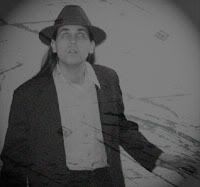I've found that Orson Scott Card is needlessly vitriolic in his non-fiction, as if he must exert effort for his fiction to be humanistic, and his non-fiction is a sort of outlet. A Postal video game in writing, if you will. His thoughts on formal writing classes I find especially repugnant. However, despite the acidic nature, this article is interesting and raises a few good points. At least the writers know who Moorcock is - most of the modern readers are completely ignorant.
[COMMENTS ABOUT ARTICLE BELOW - READ ARTICLE FIRST]
I disagree with his assessment of Next Generation. Not at a literal, face value - he's right, overall the show didn't change. One must examine the show to find the changes, which he clearly didn't do. The Borg, while not extremely original, were an excellent and innovative addition to television science-fiction. Up to that point the best that had been done with species on screen was the xenomorphs from Ridley Scott's Alien. And ultimately they were just animals capable of devouring humans. Sharks were nearly as big a sensation when they were discovered, I'm sure. And the Borg resulted in one of the bigger character changes up to that point in television history. Picard lost confidence. The show, pre-Locutus, showed Picard at his best. While human and deliberating, he was always confident. Why, in Encounter at Farpoint he orders a god from his bridge and the god obeys (for all intents and purposes, once you compare personal - not command - power, Q was a god to the Enterprise crew). The day-to-day operations returned to normal after "The Best of Both Worlds," but he was never quite as confident. And a few single episodes picked out his recovery.
Given the time frame of the show (mid-eighties) this is actually a very decent through-line, as Card calls it. Certainly it had weaknesses - compared to what's allowed today it was thoroughly episodic (though we still have problems with requiring that on television - see my earlier link to the Ferrett's Firefly article) and the acting was weak in some cases. Particularly in Troi - early her acting was atrocious, and she could only aspire to a wooden facade by series' end. Luckily her character was suited by that. Picard could have been done by any capable actor, so Stewart overshot the mark and created a truly memorable character (French lineage, British accent and all). Spiner as Data and Frakes as Riker I've always felt were actually very good and often overlooked.
This has been more a defense of one show than a response to Card's article. I already said I feel he's angry inside and uses his non-fiction to vent. I don't know the man, so I'm probably wrong - but that's the impression he gives with his essays, and that's the only impression one should actually use when discussing a written piece.
He has, however, said something I wish more people would pay attention to: that essentially science fiction and fantasy are the same, the difference being: if someone pushes a button to do something impossible to the reader, it's science fiction - if they rub a talisman to do it, it's fantasy. (I'm paraphrasing this from a book I glanced through in a bookstore - it was a short book by Card on speculative fiction, and I didn't see the title. Understandable, as by this point it's Card's name selling the books, and not the books. The name was in bigger print than the title)


0 Comments:
Post a Comment
<< Home